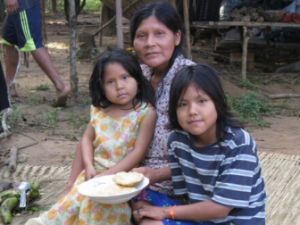What drives people seek to high social status? A common evolutionary explanation suggests men do so because, in the past, they were able to leverage their social position into producing more children and propagating their genes.
Indeed, much evidence shows that high social status grants men a number of benefits, not the least of which is increased access to sexual partners. Consider Genghis Khan, who, according to some historical estimates, fathered upwards of 1,000 children with his numerous wives and over 500 concubines.
And more recently, there’s Winston Blackmore, the leader of the polygamous Latter-Day Saints group in British Columbia, who is said to have 149 children with his 27 “spiritual wives.”
But what about women, for whom fertility is biologically constrained? Pregnancy, after all, is a nine-month endeavor, followed, in traditional societies, by another several years of breastfeeding. Realistically, over the course of her childbearing years a woman can’t expect to give birth to more than 20 or so children, and that’s assuming she devotes herself entirely to reproduction.
Given these biological limitations, how might women benefit from high status? Do women have the same motivations for status striving as men do?
New research by anthropologists at UC Santa Barbara suggests that a woman’s status does pay off, but in the form of better health outcomes for her children. Studying the Tsimane, a population indigenous to the Bolivian Amazon, the researchers found that the children of politically influential mothers are less likely to be sick, and more likely to be of healthy weight and height for their age. Their work appears in the Proceedings of the Royal Society B.
“When we think about social status, it’s often linked — for men at least — to more wealth and sexual partners and to higher fertility in places without birth control,” said Sarah Alami, a doctoral student in anthropology at UC Santa Barbara and the paper’s lead author. “But since women can never have as many children as men can, does this mean that status striving is an exclusively male privilege?”
The answer, according to the researchers, is no. “Women may just have different motivations for seeking status than men,” Alami continued. “This paper proposes that women may be more likely to leverage their status into greater resources in a way that can benefit their existing children.”
To measure status in a context of minimal material wealth, the researchers asked men and women to rank all the people in their community in terms of who has the greatest political influence, whose voice carries the most weight during community meetings, who is best at leading community projects and who garners the most respect.
When they compared those rankings against several measures of health for children, they found children of politically influential women fare better than others, those children grow faster and also are less likely to be diagnosed with common illnesses such as respiratory infections, gastrointestinal diseases and anemia. Respiratory infections are a source of morbidity and mortality in the Tsimane population.
“So much work on status focuses only on men because male status striving, leadership and power wrangling is so in-your-face,” said Michael Gurven, a professor of anthropology at UC Santa Barbara, co-director of the Tsimane Health and Life History Project and the paper’s senior author. “We wanted to measure women’s status in a relatively egalitarian society, even where most formal leaders are men, to see how variable it might be, and how it matters in daily life.”







